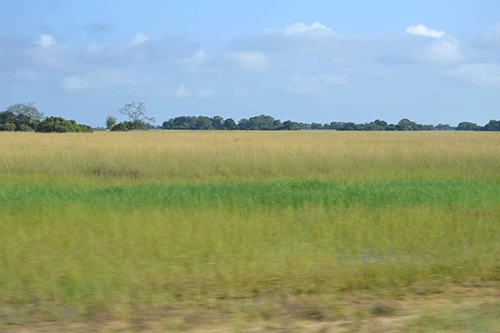KATIMA MULILO – Despite Government and private sector efforts to bring development closer to the people, some communities in the Zambezi region continually refuse to avail land for such endeavours.
The region has vast land, suitable for agricultural production and grazing. It has for years carried the tag of being Namibia’s breadbasket due to its opulent, untapped agricultural potential.
Linyanti constituency councillor Iven Kabunga expressed great concern regarding the slow pace of development in the region due to residents’ refusal to give land.
“We want development in our region. But when it comes to acquiring land, it’s a problem. I visited a potential vocational training centre (VTC) last month. We lost [out on] the development of a VTC [because] the community refused to give the land. We were supposed to have a VTC at Singalamwe, but the community refused. The community wants to be compensated. We are facing this issue in our region while we want development. We don’t want to avail land. I don’t know how we expect development to come…maybe from the sky,” he stated.
Kabunga’s sentiments were echoed by Zambezi governor Lawrence Sampofu.
“We have communal land in Zambezi. We need to use this land productively for the development of this region. There are delays because people are not giving land for development, especially in the informal settlements although there is a compensation policy,” he stated.
According to information on the ground, some residents allegedly avail land, and once the developer is done with construction, they reclaim it.
This trend has led to thousands of unsolved land disputes between residents and developers.
“Some will come and say I want land for development. These families will give you land, and wait until you finish de-bushing and building. They will then come and say ‘this is our land, get out’. They will say ‘this is our ancestral land’. This is really a problem in this region. I saw one house when you are going to Ngoma. It was a nice house. The villagers came and levelled it to the ground. They saw this person building, and they were just quiet then. When this person finished, they came to say it’s their land. They destroyed it to the ground. This will take us nowhere. We are sitting on millions of dollars [worth of] land,” the region’s political head lamented.
To harmonise the situation, the governor suggested that residents should enter into partnerships with investors if they fear losing their land.
As it stands, the Zambezi region has over 90 000 unsolved land disputes within various traditional authorities.
This is despite the 2016-2026 Zambezi integrated regional land use plan, which was officially launched by then minister of land reform Utoni Nujoma in 2019.
The 10-year land use plan aims to be used by the regional leadership in the successful implementation of a sustainable and efficient utilisation of land.
– anakale@nepc.com.na


